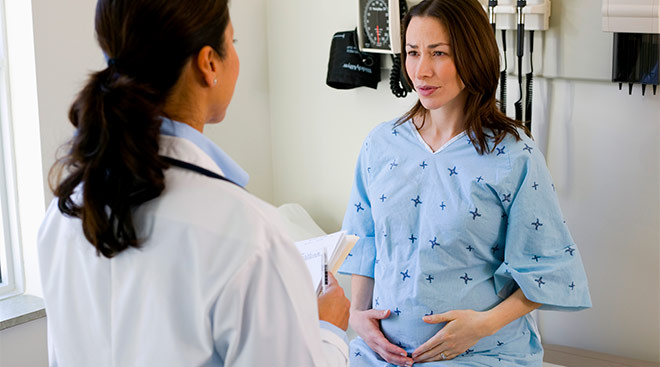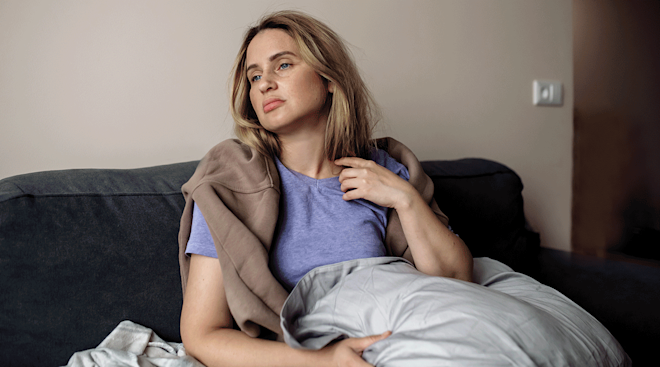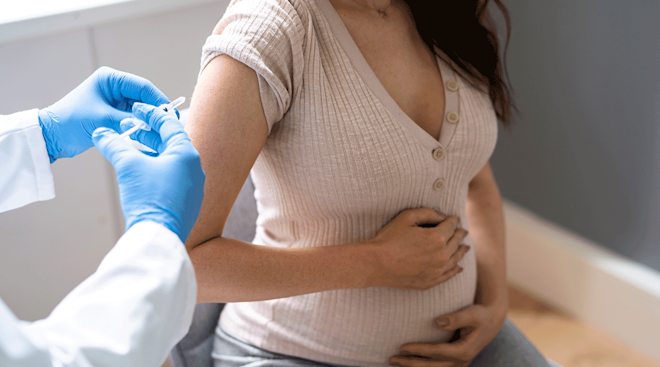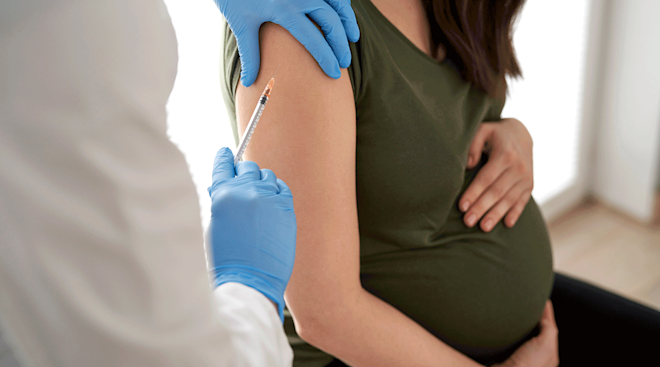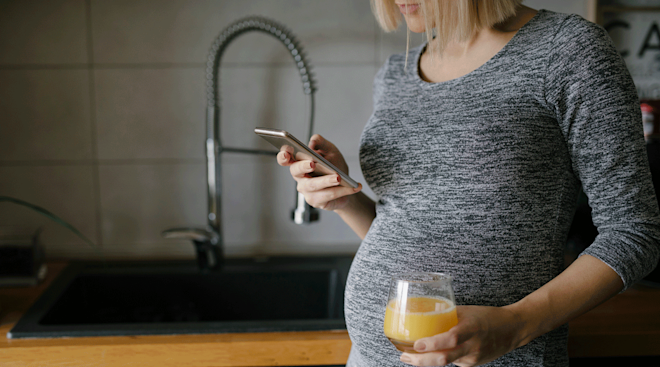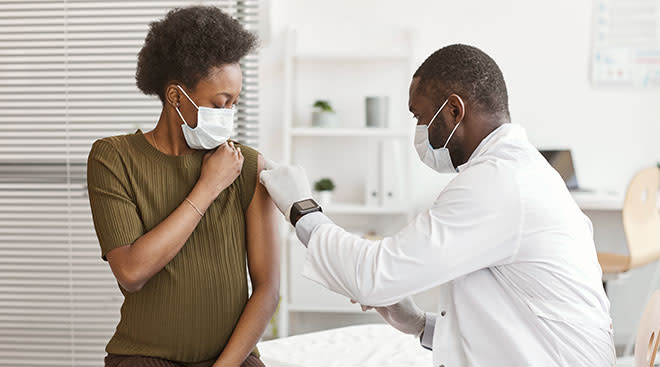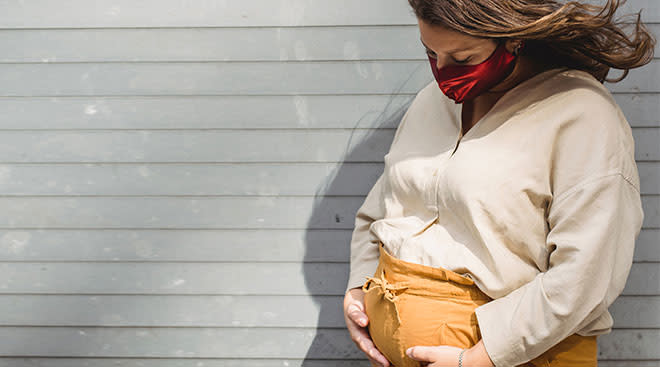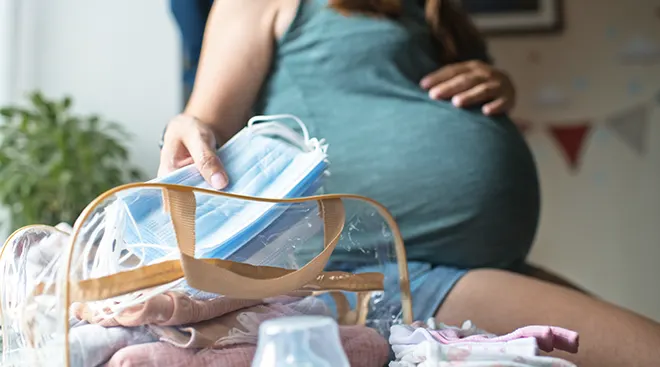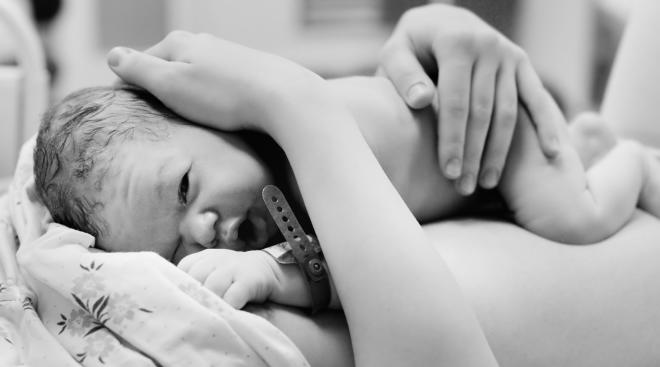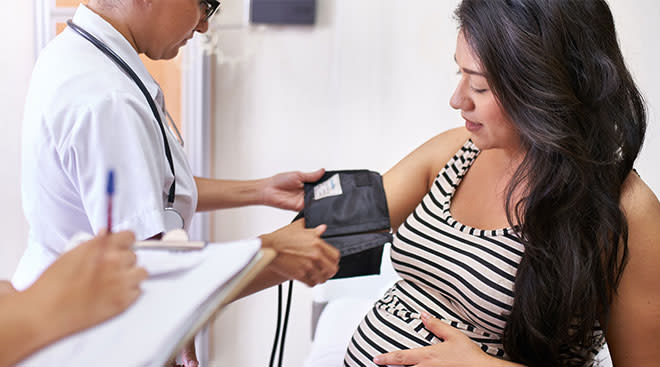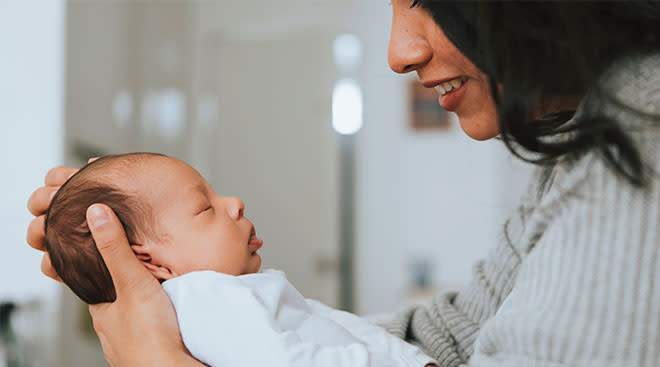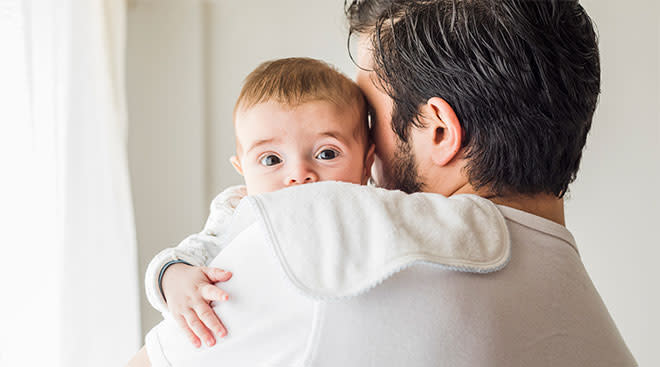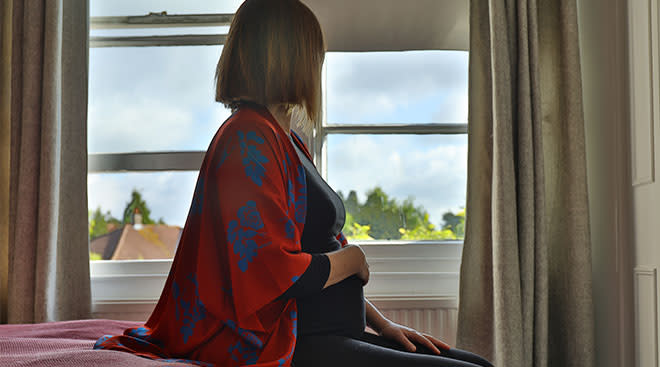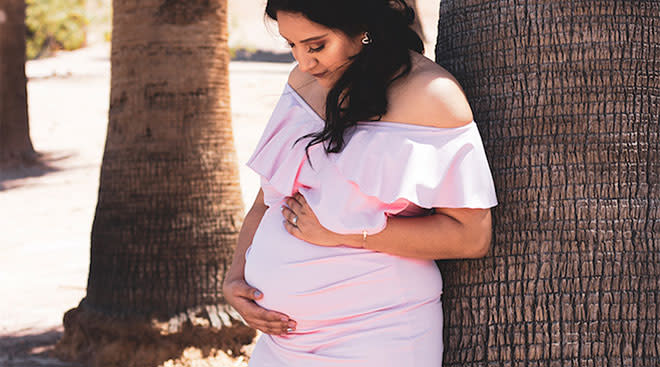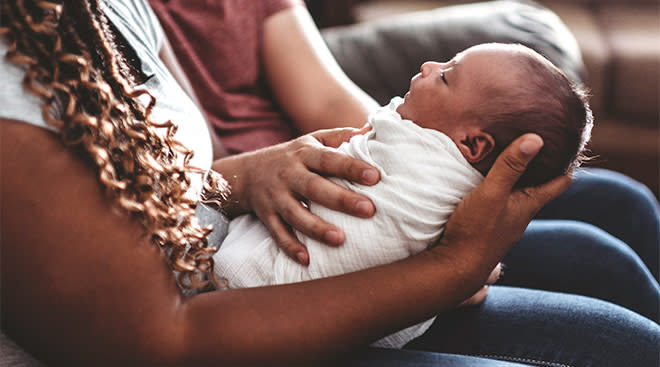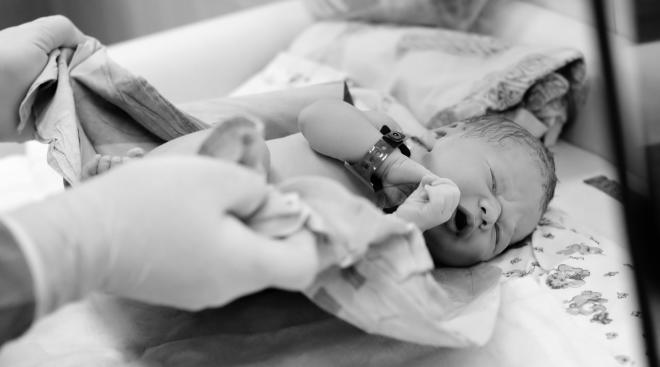Some Hospitals Are Banning Partners During Labor—Here’s What You Can Do
As the COVID-19 outbreak continues, hospitals are enforcing rules that deny or strictly limit the amount of visitors a patient can have—including laboring moms. In fact, hospitals in cities such as San Francisco, Jacksonville, Boston and New York City have already announced modified visitation policies.
While research on how COVID-19 impacts pregnant women and newborns is still inconclusive, pregnant women are generally at higher risk for respiratory infections, leading some experts to believe they may also be at higher risk for COVID-19. To ensure the safety of their patients, many hospitals accros the country are limiting childbirth visitors and increasing virtual prenatal visits, as is recommended by the American College of Obstetricians and Gynecologists (ACOG).
But the big question remains: Will women have to labor alone? According to the World Health Organization, pregnant women should receive the highest quality care before, during and after birth. This includes having a companion of choice present during delivery. While some hospitals are making an exception to allow partners into the delivery room, others are not. It’s important to note policies vary based on each hospital and each city. For the most part, across most hospital policies, any visitor that’s allowed in must be asymptomatic for COVID-19 and screened for any symptoms.
For example, in New York, according to the state’s Department of Health guidelines, “one support person essential to patient care throughout labor, delivery, and the immediate postpartum period. This person can be the patient’s spouse, partner, sibling, doula, or another person they choose.” However, this person must be asymptomatic, screened for any symptoms and have their temperature checked before entering the labor and delivery floor. Despite attempts from both New York Presbyterian hospital and Mt. Sinai Health System to not allow spouses, partners, family members or outside support people (like doulas) into labor and delivery rooms, on March 28, New York City Governor Andrew Cuomo passed an executive order that required all hospitals in New York—both public and private—comply with state guidelines and allow women to have one partner in the labor and delivery room.
Meanwhile, facilities in other cities are taking similar approaches. For example, Los Angeles’ Cedars-Sinai Medical Center and Chicago’s Northwestern Memorial Hospital are both allowing one visitor for new moms. San Francisco’s UCSF Health is also allowing pregnant women to have one visitor in the labor and delivery rooms. At UW Medicine, located in Washington State, new moms can be accompanied by one partner and one support person. Additionally, many hospitals are requiring women admitted to labor and delivery units to also wear masks and be tested for COVID-19.
It remains unclear how long the visitors—or even new moms—will be allowed in the hospital after birth. It’s best to check with your individual hospital to find out their most recent policies and procedures concerning labor and delivery and COVID-19.
While these new policies are undoubtedly stressful, they aim to ensure the safety of as many people as possible. According to the CDC, on any given day in a hospital at least one in every 31 people will get a healthcare-associated infection. But even so, that may not make it any less scary for pregnant women who are anxious they might have to go through labor and delivery without their partner.
Luckily, regardless of your hospital’s policies,there’s plenty your partner can do ahead of the big day to help involve them in the process and make you feel supported during this time, says Temeka Zore, MD, an LA-based ob-gyn and reproductive endocrinologist with Reproductive Medicine Associates of Southern California. Here are some of her suggestions:
- Have your partner put the finishing touches on baby’s room if there were things you forgot to do before bringing the baby home
- Have your partner try to meal prep and make as many meals as they can and then freeze them; this way neither of you will have to worry about cooking with a newborn
- Have your partner learn how to use the car seat, to make picking you and baby up from the hospital quick and effortless.
- To help you feel their presence while at the hospital, work with your facility to set up your iPhone or iPad so that your partner can be with you virtually, if not in the delivery room with you
- Ask your partner to create a playlist of your favorite music for the various stages of labor
- Find a way to introduce your partner to the Labor and Delivery team, so even if your partner can’t be there in person, they’ll feel involved and know who will be caring for you.
The most important way partners can support expectant women? Talk to them! Discuss the things you hope you do once baby comes home, but also discuss how you both are feeling in the weeks leading up to baby, Zore says. While this is an extremely difficult time, know that you will get through this and be together as a family soon.
Please note: The Bump and the materials and information it contains are not intended to, and do not constitute, medical or other health advice or diagnosis and should not be used as such. You should always consult with a qualified physician or health professional about your specific circumstances.
Navigate forward to interact with the calendar and select a date. Press the question mark key to get the keyboard shortcuts for changing dates.

































